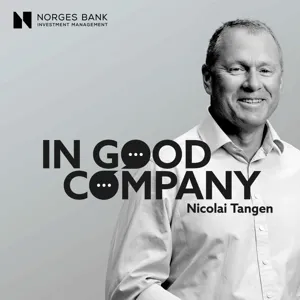Podcast Summary
Understanding the Role of Indices in Global Investing: Indices represent various markets, provide transparency, and are essential tools for investors to understand market performance. MSCI, a leading index provider, plays a central role in this industry.
Indices play a crucial role in the global investment industry by representing various markets and providing investors with an easy way to gain exposure to them. An index is a collection of securities that reflect the market capitalization of a particular market, such as Europe or emerging markets. MSCI, one of the world's largest index providers, compiles and manages these indices, making it a central connecting dot for the investment industry. The value of all the companies in an index is added up to give a single number representing the performance of that market. Initially, there was skepticism about the value of index investing in the 1990s, but it has proven to be a valuable investment strategy over time. Indices provide transparency and help investors understand market performance, making them essential tools in the investment industry. MSCI, as a leader in this field, is an underappreciated power in finance, and its influence is only likely to grow.
Backgrounds and experiences shape our motivations: Understanding how our past influences our goals can help us make a meaningful impact on the world
Despite the challenges of trying to beat the market, our backgrounds and experiences shape our motivations and ambitions in life. The speaker, for instance, grew up in Nicaragua during political turmoil and was motivated to be an agent of change. However, when the country went socialist, his family immigrated to the US as they were pro-capitalism. His father, an orphan who made a career in the military, instilled in him a sense of purpose and mission. Traveling through Europe in his late teens, the speaker pondered what his contribution to the world would be. Though many of us have to focus on survival, it's essential to recognize the impact our backgrounds and experiences have on our aspirations.
The Impact of Passive and ESG Investing on Markets: Passive investing through index providers has become a significant force in the markets, with 40% of assets managed in America being passive. ESG investing, focusing on climate, environmental, and governance issues, is another growing trend.
The rise of passive investing through index providers has significantly impacted the markets, making index investors the definition of long-term investors. With approximately 40% of assets managed by funds in America being passive, index investors provide stability and consistency in the market. However, there is a possibility that a small minority of active investors could create liquidity and diverse perspectives. ESG investing, which focuses on climate, environmental, and governance issues, is another growing trend. Renee Kaplan, an early mover in the ESG space, shares how it all started with a Norwegian insurance company, Storebrand, requesting an index for their socially responsible international portfolio. As an economist, Kaplan analyzed ESG investing from an economic perspective, recognizing that any economic system creates externalities. The trend towards passive investing and ESG investing is expected to continue and potentially reach even higher numbers in the future.
Navigating the Political Landscape of Sustainable Investing: Investors must balance political considerations with their investing goals, focusing on sustainable returns for their fiduciaries while factoring in externalities for effective capital allocation and economic growth.
Investing sustainably is crucial for high returns as externalities need to be factored into the cost of capital and pricing of assets for effective allocation of capital and better economic growth. However, the debate around Environmental, Social, and Governance (ESG) investing has become politicized, making it essential for investors to apply these principles within their investing lane, focusing on sustainable returns for their fiduciaries, rather than engaging in political battles. Despite the backlash, the political nature of ESG is undeniable, as businesses operate under a societal license, and addressing social issues is the responsibility of politicians. Ultimately, investors must navigate the political landscape while staying committed to their investing goals.
ESG investing goes beyond politics and markets, it's about societal accountability: MSCI prioritizes common sense and accountability in ESG investing, despite political tensions and talent recruitment challenges
ESG (Environmental, Social, and Governance) investing is not just about politics or capital markets, but about society holding all institutions accountable for the betterment of mankind. For businesses like MSCI, which facilitate the flow of capital globally, political tensions can impact their work, such as the inclusion or exclusion of countries like China or Russia from indices based on investability. Recruiting talent is also crucial, with a preference for experienced hires and a focus on respecting new employees' autonomy. Despite the challenges, MSCI continues to prioritize common sense and accountability in its approach to ESG investing.
Asking open-ended questions during interviews: Employers value candidates who ask thoughtful questions, show passion, and intellectual curiosity. Remote work allows companies to attract global talent.
During job interviews, it's essential to ask open-ended questions to gauge a candidate's thought process, passion, intellectual curiosity, and ability to innovate. Employers value individuals who are attractive, passionate, and not afraid to ask questions, especially when dealing with smart clients. Remote working is a popular trend, but there's a limit to what can be achieved in a hybrid work environment. Companies like MSCI, which have a global team, have seen improved ability to attract talent due to remote working. Leadership principles include leading by example and being prepared to do what you ask of your team.
Balancing safety and values in team environments: Effective leaders create safe spaces for debate and contributions, instill company values, balance personal involvement with institutionalization, recognize team efforts, make tough decisions, and reflect on their leadership constantly.
Effective leadership involves creating an environment where team members feel safe to debate and contribute, while also instilling company values and principles. Leaders must balance personal involvement with institutionalizing the company for long-term success. They should recognize the importance of their team and give credit where it's due. Leaders must also be willing to make tough decisions, even if they come with personal or financial costs, and be open to constructive criticism while restraining any opinionated or emotional responses. Ultimately, leadership is about doing the right thing, regardless of the consequences. Additionally, continuous self-reflection and improvement are essential for effective leadership.
Political Discipline and Professional Management key to Sovereign Wealth Fund Success: Norway's success with its sovereign wealth fund is due to politicians' long-term vision and professional management, but there's room to explore new investment areas like infrastructure.
The success of a sovereign wealth fund relies on both political discipline and professional management. Politicians in Norway have consistently set aside funds for future generations and have resisted the temptation to use it for short-term gains. Additionally, the fund has been managed by professionals with a meritocratic approach, ensuring a strong connection between governance and investments. However, the fund's investment scope could be expanded to include newer areas like infrastructure investing, which could potentially yield higher returns. For young people, the advice is to follow their passion in their careers and give it their all, as working in a field that doesn't motivate them can lead to an unfulfilling life.
Calculated risks and positive impact: Live a life that matters, not just one that pays the bills. Take calculated risks, be passionate, recover when needed, and make a positive impact on the world.
Living a fulfilling life involves taking calculated risks and making a positive impact on the world. According to the speaker, regret is often linked to not taking enough risks and playing it too safe. However, risks can lead to great rewards in the long run. It's important to be passionate about what you do and to recover if things don't go as planned. Additionally, while providing for your family is essential, try to make a difference in the world, as it's the contributions we make that will be remembered long after we're gone. The speaker believes that most significant changes come from the private sector, and it's up to each of us to use our skills, energy, and passion to make a positive impact. In essence, aim to live a life that matters, not just one that pays the bills.





